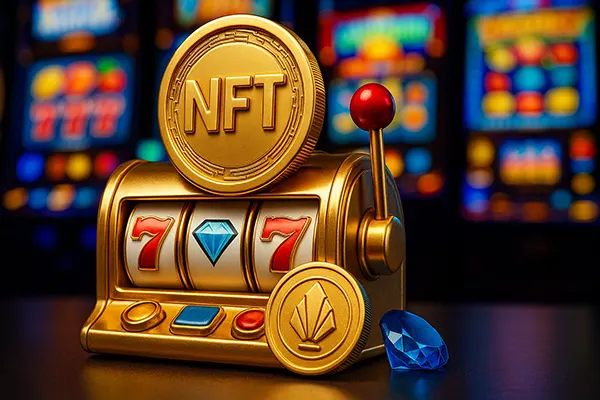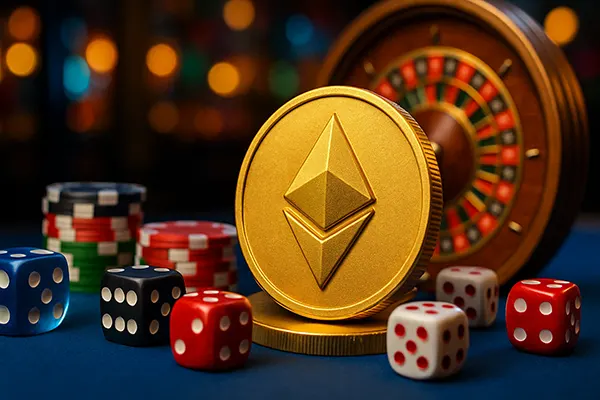
NFT in Slot Games: How Players Can Own Unique Artefacts in Virtual Casinos
Non-fungible tokens (NFTs) are transforming many aspects of digital life, and the online casino industry is no exception. In 2025, an increasing number of virtual casinos are integrating NFTs into their slot games, providing players with new levels of interaction and digital ownership. These developments go far beyond simple collectables — they’re redefining what it means to win and possess in the realm of online gaming.
The Role of NFTs in Modern Slot Games
Slot games that incorporate NFTs allow players to acquire exclusive items that are recorded on a blockchain, guaranteeing uniqueness and provenance. These artefacts might include rare in-game symbols, characters, backgrounds, or even slot machine skins. Because these NFTs are owned by players rather than the game provider, they can often be traded, sold, or used across multiple games — a concept known as interoperability.
Beyond aesthetics, NFT integration in slots can have gameplay implications. For instance, owning a particular NFT might boost a player’s win multiplier, unlock special bonus rounds, or provide access to exclusive tournaments. These features encourage a new layer of engagement, where strategy and ownership enhance the traditional reel-spinning experience.
Some blockchain-based platforms such as Rollbit and BC.Game have already adopted NFTs within their gaming ecosystems. Players can win NFT prizes directly from slot machines or earn them by completing in-game challenges. This structure creates a sense of progression and long-term rewards, appealing to both casual gamers and collectors.
Ownership, Trading, and Real-World Value
The concept of ownership is central to the NFT revolution. When a player acquires a slot-related NFT, they possess a verifiable asset that can be listed on third-party marketplaces such as OpenSea or Blur. These items might gain value over time, especially if they are linked to high-demand games or represent limited-edition content.
This development allows players to capitalise on their gameplay, transforming time spent in virtual casinos into tangible outcomes. NFTs bridge the gap between gaming and digital investment, a trend particularly appealing to younger audiences accustomed to crypto wallets and blockchain assets.
Some casinos offer NFT drops with time-limited availability or require certain achievements to unlock them, fuelling a new economy based on rarity and community status. Players who invest early or perform well in games can earn a unique place in the game’s ecosystem, both socially and financially.
How Developers Are Leveraging NFT Technology
Game developers are utilising NFTs not just to enhance gameplay, but to build entire gaming ecosystems where assets can move freely between titles. Companies like FunFair and Decentral Games are pioneering this model by releasing collections that tie into multiple slot releases, ensuring ongoing value and relevance for digital artefacts.
This cross-game integration encourages player loyalty and repeat engagement. For example, a player who acquires a “Phoenix Reel” NFT in one slot might later use it to activate bonus content in a different game from the same developer. This interconnectedness makes NFTs more than just decorative — they become tools for exploration and mastery.
Developers are also using NFTs for community-building. By issuing limited-run collections or letting players vote on future slot themes through NFT governance mechanisms, studios create a more democratic and responsive design process. This empowers players to have a stake not only in the game but in its evolution.
Security, Authenticity, and the Blockchain Advantage
One of the key advantages of NFTs is their underlying blockchain technology. Each token is verifiable and cannot be duplicated, eliminating issues of counterfeiting and ensuring that each artefact is truly unique. This transparency builds trust among players, especially in environments where fairness and security are paramount.
Using smart contracts, developers can automate royalty payments, distribute rewards, and ensure that NFT holders are properly compensated when items are resold. This technical foundation provides both security for developers and value for players, reinforcing the NFT ecosystem’s sustainability.
Moreover, integrating NFTs on reputable blockchains like Ethereum, Polygon, or Solana ensures wide accessibility and compatibility with popular wallets. These integrations reduce friction for users and streamline the process of acquiring, transferring, and showcasing digital items both in-game and on public profiles.

The Future Outlook for NFT Slot Integration
By 2025, NFT-powered slots are poised to become a significant segment of the iGaming industry. As technology matures and regulatory frameworks evolve, more operators are expected to adopt these mechanics. The result is a more immersive, customisable, and potentially profitable slot experience that breaks from tradition.
One possible direction is the development of fully decentralised slot platforms where every item, spin result, and transaction is recorded on-chain. This would drastically increase transparency and allow communities to audit games in real-time, improving fairness and trust across the industry.
Furthermore, as the Metaverse continues to expand, NFTs will play an essential role in linking slot games with broader digital ecosystems. Players might one day use their slot-based NFTs as avatars, trade them for Metaverse land parcels, or even stake them for passive income — blurring the lines between entertainment, finance, and virtual identity.
Challenges and Considerations for Mass Adoption
Despite the excitement, there are challenges that could impact the scalability of NFT slot games. One major concern is regulatory clarity, as gambling and blockchain technologies are subject to varied legislation across jurisdictions. Operators must navigate these landscapes carefully to avoid legal pitfalls.
Additionally, NFT ownership introduces new layers of complexity for users, particularly those unfamiliar with crypto. Wallet setup, transaction fees, and security concerns remain barriers that must be addressed through better user onboarding and simplified interfaces.
Finally, the environmental impact of blockchain technology is under scrutiny. Though many platforms are transitioning to energy-efficient models (e.g. Ethereum’s shift to Proof of Stake), developers and casinos alike must remain transparent about sustainability efforts to align with modern user values.
